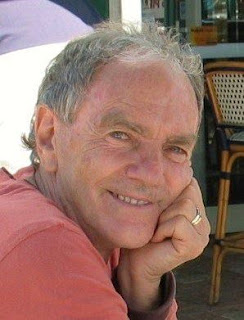We are not our bodies ...
... was tirelessly repeated by Shri Nisargadatta. The way he reached this conclusion was by focusing his attention on the very fact of his existence - I am! With time, he realized that our true nature is ... consciousness!
Nisargadatta was not unique in reaching this conclusion. In fact, it has been well established in thousands years long traditional of Indian philosophy and the practices of yoga. This is how Swami Rama explained this issue:
"The main teaching of yoga is that man’s innermost nature is
divine but he is unaware of this and mistakes himself for his body and
intellect – both of which exist within the realm of matter and therefore are
subject to decay and death. All of man’s misery is a consequence of this false
identification. Yoga leads one to the direct experience of inner Self, his true
identity. With such realization comes liberation from all human imperfections." (Swami Rama (1998). The Royal Path. Practical Lessons on
Yoga. Himalayan Institute Press. Honesdale, PE.,vii)
It sounds good to me, in principle. In my daily life, I observe all the time how quickly my mind runs toward the needs of the body, and its own. This is a tricky issue.
In, counting over 18K members, Facebook Discussion Group, devoted to the teachings of Shri Nisargadatta, Rajendra Keshi, quoting Nisargadatta's words:
"My life is a succession of events, just like yours. Only I am detached and see the passing show as a passing show, while you stick to things and move along with them."
popped (18 Sep 2019) a provoking question:
"My doubt is, without attachment, how to act in life. Suppose I am losing a job, on which my family is dependent. I get stressed, because I am worried about how to support my family. In this situation, I find attachment is a mechanism to protect and progress. If I am detached and take life as passing show, then who will provide for me and my family (...)?"
This is a valid question. The ideals of meditative life seem to be more suitable for older folks, like me, whose basic needs are covered through a retirement pension. However, younger people have to work, and they better pay attention to how they are going to fulfill the needs of their bodies and the bodies of their offsprings. For them, I think, the philosophies of Karma Yoga as explained, for instance, by Haidakhan Babaji, are more suited. The ideal is, I believe, to be attentive and diligent in one's duties toward family and society, while not getting attached to the fruits of one's labor. (For other insightful responses to Mr. Keshi's question, join the discussion group).
The problem is that it is not only the body, that seems to have some imposing needs, but also the mind! I have always enjoyed the games that tease my mind's capacities - chess, scramble, crossword puzzles, and card games, such as contract bridge. Having more time lately, I started playing bridge more often, being fully aware that it is unlikely to bring me ... enlightenment. Still, it is definitely pleasant for my mind to be engaged in solving challenges of the game. I also enjoy ... competition!
Is it possible, at all, to be aware of one's divine nature, while working on a squeeze to win another slam?
(PR)
Nisargadatta was not unique in reaching this conclusion. In fact, it has been well established in thousands years long traditional of Indian philosophy and the practices of yoga. This is how Swami Rama explained this issue:
 |
| Swami Rama (Wikipedia) |
It sounds good to me, in principle. In my daily life, I observe all the time how quickly my mind runs toward the needs of the body, and its own. This is a tricky issue.
In, counting over 18K members, Facebook Discussion Group, devoted to the teachings of Shri Nisargadatta, Rajendra Keshi, quoting Nisargadatta's words:
"My life is a succession of events, just like yours. Only I am detached and see the passing show as a passing show, while you stick to things and move along with them."
popped (18 Sep 2019) a provoking question:
"My doubt is, without attachment, how to act in life. Suppose I am losing a job, on which my family is dependent. I get stressed, because I am worried about how to support my family. In this situation, I find attachment is a mechanism to protect and progress. If I am detached and take life as passing show, then who will provide for me and my family (...)?"
This is a valid question. The ideals of meditative life seem to be more suitable for older folks, like me, whose basic needs are covered through a retirement pension. However, younger people have to work, and they better pay attention to how they are going to fulfill the needs of their bodies and the bodies of their offsprings. For them, I think, the philosophies of Karma Yoga as explained, for instance, by Haidakhan Babaji, are more suited. The ideal is, I believe, to be attentive and diligent in one's duties toward family and society, while not getting attached to the fruits of one's labor. (For other insightful responses to Mr. Keshi's question, join the discussion group).
 |
| Image courtesy of: https://truththeory.com/2015/06/23/the-science-of-enlightenment/ |
Is it possible, at all, to be aware of one's divine nature, while working on a squeeze to win another slam?
(PR)


Comments
Post a Comment